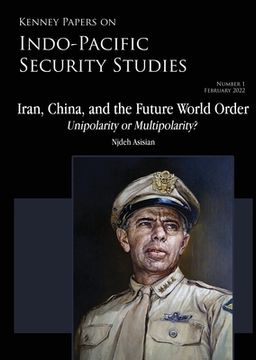Compartir
Iran, China, and the Future World Order - Unipolarity or Multipolarity (en Inglés)
Njdeh Asisian
(Autor)
·
Independently Published
· Tapa Blanda
Iran, China, and the Future World Order - Unipolarity or Multipolarity (en Inglés) - Asisian, Njdeh ; Air University Press
Elige la lista en la que quieres agregar tu producto o crea una nueva lista
✓ Producto agregado correctamente a la lista de deseos.
Ir a Mis Listas
Origen: Estados Unidos
(Costos de importación incluídos en el precio)
Se enviará desde nuestra bodega entre el
Lunes 24 de Junio y el
Lunes 08 de Julio.
Lo recibirás en cualquier lugar de Argentina entre 1 y 3 días hábiles luego del envío.
Reseña del libro "Iran, China, and the Future World Order - Unipolarity or Multipolarity (en Inglés)"
February 2022; The twenty-first century has seen a series of geopolitical and strategic shifts around the world, including in the Indo-Pacific, presenting major challenges to national leaders and military planners. Tectonic movements following the collapse of the Soviet Union in 1989, paired with technological advances, changed traditional ways of thinking about the global political system. Such readjustments and advancements broke old alliances and spurred new geopolitical and economic realities. In the past, the West faced two different security and economic problems: The first was the Soviet Union as a significant security problem, and the second was the feasibility of producing certain goods and services in the West. The US-Chinese alliance of the previous 40 years intended to address and perhaps even solve these problems. China, in fact, was an instrumental tool to contain the Soviet Union, and in the economic sphere China replaced the United States and other Western countries' workers with cheap labor and coveted products. Thus, the collapse of the Soviet Union led to the rise of China as a new global competitor. At the same time, technological advancements changed the overall industrial production in favor of the Western alliance. China clearly understood that its honeymoon with the United States was ending. Western economies can now produce the same goods and services at a reasonable cost and may become significant competitors for Chinese economic outputs. Thus, one can analyze the Chinese Belt and Road Initiative as a strategic attempt to shift the Chinese economy's current orientation from the United States and the West to the rest of the Eurasian landmass. The Belt and Road Initiative has become strategic as China shops for new alliances that could undermine the overall US position in the Eurasian landmass (forming a new alliance to contain the US hegemonic power). This paper discusses the Chinese strategic thought process and how Iran becomes the chokepoint of this gigantic Chinese program, which eventually will determine the future of the balance of power and finalize the fate of a unipolar versus multipolar global system.

